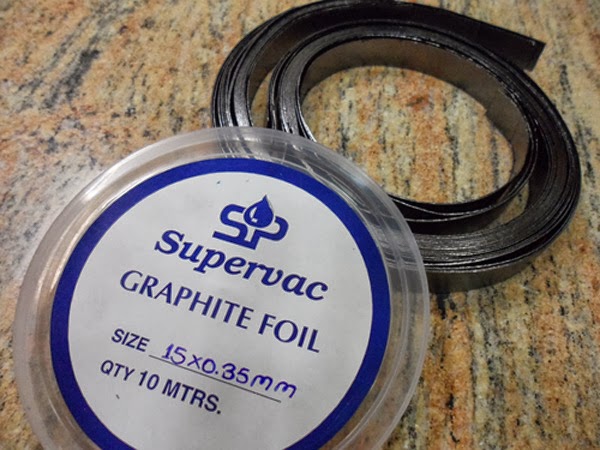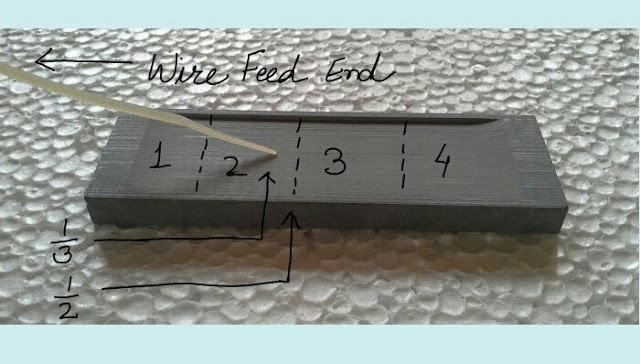In the present time of intense competition, it is natural that engineers are trying hard to optimize the use of every resource to reduce costs. In Metalizing, Evaporation Boats undoubtedly contribute most in variable cost. It is therefore important that maximum life is derived from Evaporation Boats without affecting the quality of Metalizing.
Based on my knowledge of Engineering,
experience of nearly 20 years in vacuum line and interaction with actual users,
I have compiled a list of measures which if implemented can ‘enhance’ the life
of Evaporation boats by about 25% so that you get your money’s worth out of it.
These have been
summarized as under -
1)
Initial
heating of the new boats also called “break in” must always be slow to get
proper life from Boats.
Reason? New boats will always have some absorbed moisture. If the boat is
heated quickly in this condition, the moisture, converted into steam having
much higher volume will have little time to escape and can cause cracks because
of high pressure build up.
2)
At the end of the
cycle it must be ensured that all the Aluminum or any other metal being metalized
has evaporated completely before heating is switched off. Otherwise residual metal will seep
into the pores of boats; now differential cooling rates of boat and metal will
crack the boat.
3)
Care must be exercised that before the
vacuum is broken, boats must have cooled down. This is because sudden contact with cold air can
cause boat breakage. About 5 minutes is enough for boats to cool down.
4)
Worn out copper clamps also are a big
reason for boats not performing to their full capacity. Non uniform wear of clamp causes
sparking between clamp and boat; this overheats and cracks the boat.
5)
A good quality graphite foil is very
important factor in enhancing the life of Boat. To save money, sometimes Metalizers use poor quality
plumbing grade graphite foil. This foil contains many impurities and binders
and offers resistance to the flow of current. This causes the ends of boat to overheat
and break. Supervac supplies 100% pure graphite foil free of binders. This is
made with the patented process of Exfoliation. This foil gives you the
following outstanding benefits –
A)
Offers no resistance to the flow of
current.
B)
Saves costly power.
C)
Enhances the life of Boats.
6)
There is one more major factor inter
linking the life of evaporation boat with graphite foil. Good quality graphite foil
has good compressibility.
This allows a proper electrical contact in boats and clamp before heating
begins and expansion of boats in heated condition. Poor quality graphite foil
on the other hand will not allow expansion of boats in heated condition putting
additional stress and subsequent breakage of boats.
7)
Aluminum of purity 99% or more is required
to avoid premature cracking. Impure aluminum will have impurities which will have different boiling
temperatures; this will lead to an unstable pool of metal in boat cavity. This
in turn results in non uniform heating of Evaporation Boat leading to thermal
stress and breakage.
8)
Age of aluminum wire also affects boat
life. With age, aluminum
oxidizes and Aluminum oxide thus formed causes spitting and excessive heating
of Boats. Freshly made or “cleaned” wire works best.
9) Hardness
of Aluminum should be maintained in proper range if required by tempering as a
very hard wire is likely to puncture the boats.
10) Aluminum wire should be fed in such a way that it meets boat in the center widthwise and in between 1/3 to ½ lengthwise. This ensures proper pool formation and increases the life of boats. (I have written a blog post entirely on this topic in the past. You can read it here.)
11) Feed of aluminum wire must be regulated to
ensure that some aluminum is always available as molten “pool” on the surface
of Boat. This makes sure
that boat is uniformly heated and increases the life of boat.
12) Power to boat must be so regulated that
aluminum melts just before touching the boat , otherwise it will cause an indentation in boat cavity,
hastening the failure of boat.
13) It
has been observed that Boats made of Titanium Diboride and Boron
Nitride (also called 2 components or dimet) work out to be more economical than boats where Aluminum nitride is
also used in addition to the 2 ceramic powders mentioned above to reduce the
cost. Three component boats, though cheaper in cost, have a markedly shorter
life.
14)
Experience shows that normal rectangular
boats with cavity work out cheaper then Triangular or elliptical boats or boats
without cavity or laser grooves on surface.
15)
Good quality boats, manufactured by reputed
companies like Supervac, having density of the order of 98% of theoretical
density have very low porosity. This reduces aluminum seepage in boats and enhances life of boat. These
boats work out much more economical than those supplied by phony “importers”/
unknown companies having no quality standards.
16) Contrary to popular myth, using boats with
initial resistivity higher then recommended by manufacturer does not give more
life. In fact this
wastes power, causes overheating and premature cracking of boats.
17) Experience proves that spring loaded end support
for boats works best for optimizing the life of boats as it provides a proper contact and
allows expansion of boats on heating.
18) Level of vacuum in system is also very
important for getting proper life from boat. Working at vacuum above 1x 10-4 Torr is
detrimental to the health of Boats as they get oxidized and damaged.( For
getting high level of vacuum in shortest possible time Supervac Sigma+™ Diffusion Pump oil and Supervac SV-77™ Rotary Vacuum Pump Oil can be used.)
Points mentioned above are quite easy to implement and best of all do not cost an extra rupee. This however can result in a saving of about Rs. 9, 00,000/- per year per metallizer (a typical metallizer uses about 300 boats per month, costing about Rs.1, 000 per boat. Saving is 300 x12 x1000 x25% = Rs.9, 00,000/-). This is not all; implementation of these actions will also lead to better metalizing quality, better maintained plant and saving of costly power also.
Written by: Anshuman Punj.





